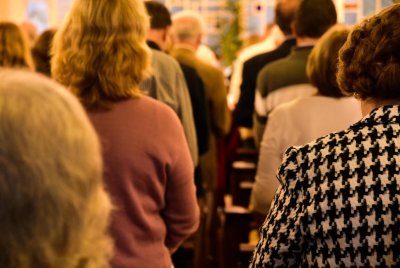
SANTIAGO, Chile, May 25 (UPI) — Once viewed as peripheral players, Protestant churches have risen over the past two decades to become influential actors in the spiritual and political realms across Latin America.
According to data from the Pew Research Center, Protestants have increased from just 1% of the Latin American population at the start of the 20th century to nearly 20% by 2024. In contrast, the Catholic population has decreased to 69% from 94% over the same period.
The shift is especially pronounced in Honduras and Guatemala, where Protestants now outnumber Catholics, and in Brazil, where they account for 28% of the population.
This demographic growth has been accompanied by the increasing political involvement of religious leaders, many of whom have won public office or directly influenced state policies.
The power of Protestant churches stems from their close ties to local communities and their ability to offer concrete spiritual guidance. They also have shown political ability in shaping debates on conservative issues such as abortion, LGBTQ rights and sex education.
The rise of the far right in Latin America and the growth of Protestant churches are not separate trends, according to Israel Vilchez, director of Christian news outlet Cosmovision.cl.
“They have a close connection that is reshaping political agendas and challenging the traditional Catholic dominance,” Vilchez said.
In Brazil, the Evangelical Parliamentary Front is one of the most powerful blocs in Congress and backed the right-wing government of Jair Bolsonaro under the slogan “family, homeland and God.”
In Guatemala, Protestant actor Jimmy Morales won the presidency in 2016 and aligned his policies with conservative groups.
In Costa Rica, pastor Fabricio Alvarado reached the presidential runoff in 2018.
In Mexico, the protestant Social Encounter Party supported President Andrés Manuel López Obrador in that year’s election.
In Argentina, Presidential Javier Milei received support from the Christian Alliance of Evangelical Churches during his campaign, although some groups later raised concerns over policies they said could weaken social justice.
Protestant support for right-wing political parties is not based solely on ideological alignment, according to Chilean sociologist Felipe Cruz.
“It is primarily a strong opposition to so-called progressive public policies, such as same-sex marriage and gender identity laws,” Cruz said.
In Chile, Protestant churches represent 17% of the population, according to the Center for Public Studies. The Chilean Congress includes a Protestant caucus consisting of members from various right-wing parties and the Christian Social Party.
“Churches will identify more with right-wing parties as long as they support fundamental, non-negotiable values such as opposition to abortion, homosexuality and certain approaches to education,” said Bishop Emiliano Soto, president of the Expanded Board of Evangelical Churches of Chile.
With a growing social base and increasingly visible ties to political power, protestant churches are emerging as key players in Latin America’s future. Their influence is reshaping not only the region’s religious landscape but also its political map in a time of constant change.